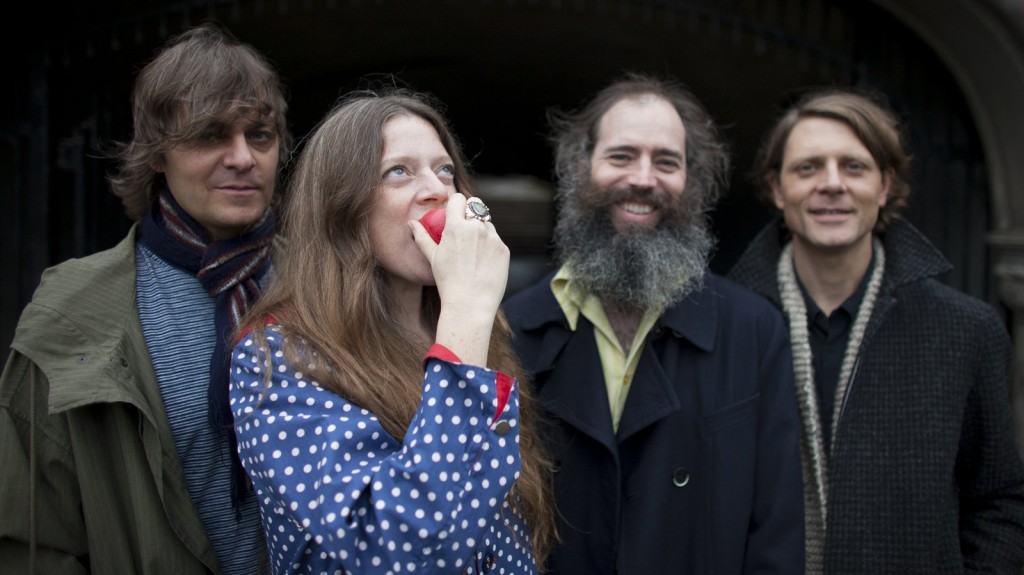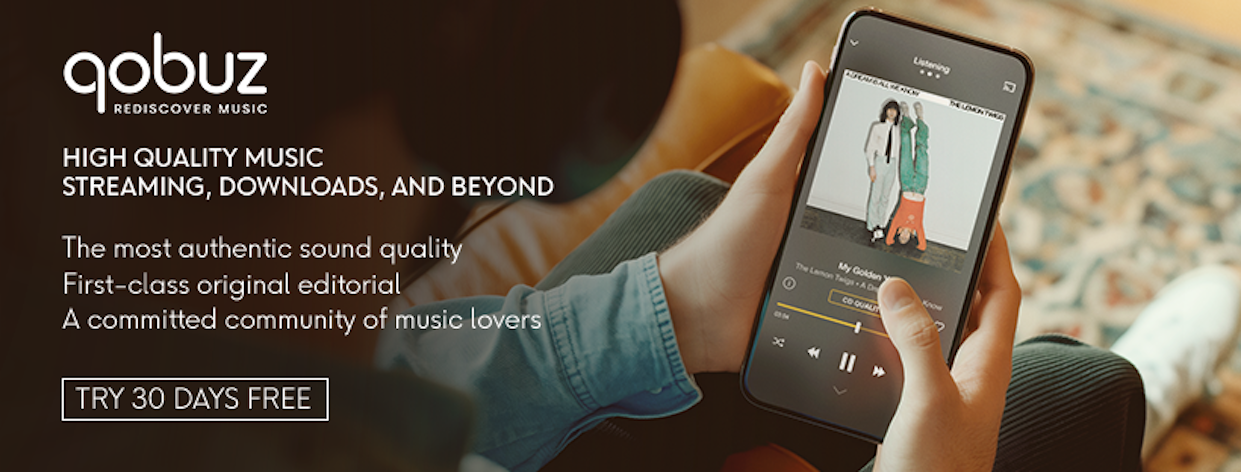Heron Oblivion interview
This “reassuring psych-folk aggregation” featured in issue #53. Here’s JOE BANKS full interview the piece was based on

Shindig!: The album has a real “live” sound to it – how much of it was recorded live in the studio?
Noel: Yeah, good ears! It was recorded almost entirely live in a tiny studio tracking room. We crammed in, did our best to point our amps at different corners of the room to manage bleed and stuff (didn’t really work) and banged out the songs in a weekend. We had been rehearsing all together in a room about the same size so it seemed to make the most sense to give it a go in that “live” format for visual cues for changes, etc. Some of the songs were still a bit loose by the time we hit the studio. Meg recorded all of her vocals after the fact. We couldn’t have pulled that off in the live room. Plus, it gave her the time and space to build some really nice harmonies that we’d obviously never even heard prior. It was an exciting building process. There were very few instrument overdubs and when they do pop up on the record, I think they’re pretty transparent and their intention clear. I were allowed access to best of both worlds by preserving the live energy of the way the group plays together while being also able to give Meg the time and space to focus and experiment with vocals.
Shindig!: How important is improvisation and the ambience of the space you’re recording in?
Noel: (I think I might be misunderstanding the question but it seems like two questions here, bear with me…) A good majority of the album’s songs were born out of 20 minute improvisations that we would go back and listen to and try to pick parts from. Most of the solo sections were left pretty wide open. A lot of that improv was solidified by the recording process. After listening back over and over again and choosing one take over another, some of the looser/improv parts become more concrete and and part of the identity of the song. Every guitar solo Charlie and I played in the studio was drastically different take-to-take. Some of those stuck after the mixing process and some of them remain as pure improv sections for the guitars. One of the core concepts of the group is to make opportunities for the guitars to rise up and scorch everything to dust at.
As far as the space we’re recording in, I don’t think that concerns us much. Even if we had the luxury of recording in a huge studio, we probably would have set up standing a few feet a part from each other to keep the energy alive.
Shindig!: Are all songs group compositions or does each one have a lead writer?
Noel: Yeah, they’re all group compositions. There might be a song or two where I brought most all of the parts in and they remained relatively intact but they would sound nothing like the record had they not gone through our collaborative process. Nobody writes parts for anyone else to play. Sometimes I would bring in something that I thought was a verse section but was missing a chorus. Often times that verse would be suggested as a chorus and then someone else would come up with the verse, turning the whole idea on its head. I’m sure this is how lots of records are made. Some songs were probably us cramming two people’s different ideas and some improv piece into song and taking it from there. Honestly, when all is said and done, it’s hard for me to even discern where all the parts even came from. The process took a lot of rehearsal taping, notes exchanges, and being open to and trusting each other’s arrangement suggestions. We were working on our own timeline until someone asked us to play live. Until then, we had a lot of time to experiment and come at a list of ideas from a lot of different angles.
Shindig!: Meg, how much of a contrast is your role as both drummer and singer in HO to what you were doing with Espers?
Meg: The volume and instrumentation is really different, but I definitely was in a time keeper role in Espers. Because I played so often in alternating thumb lead style, I had a really strong playing relationship with Otto and Ben (two of my favorite drummers!) that was more typical to being in a rhythm section. There was so, so much going on and push and pull in the instrumentation, that I learned to separate singing from the bigger picture of timing and forward movement from playing with the Espers gang.
My drumming technique is so rudimentary, that when I’m playing with Heron Oblivion I can really focus on just voice and time. It’s more visceral and exciting that way… like sports!
Shindig!: Meg, do you have any particular lyrical inspirations on this album?
Meg: The inspiration came from a big mix of references and interests at hand and the kind of stuff that stays pretty close by in my head all the time. A few consistent themes definitely did pop up though – mostly continental drift and natural disaster on both the personal and the macro scale. I also love pulling from folk songs and stories. ‘Faro’ has tons of references to ‘Child Ballad #62’, and Noel lent me a really cool little book with loads of poltergeist and other occult tales that was really fun to pull from. I was also spending a ton of time thinking about Leonora Carrington’s incredible life and work in surrealist art.
Shindig!: Both Comets On Fire and Espers were early movers in the current resurgence of psych, which seems to be getting bigger and bigger by the day – why do you think there’s so much psych out there now?
Meg: I think that a lot of music that might fall under that heading is music that is really good for listening –listening in a long and extended way. I know the overall general attention span out there seems to take a big hit every day, but I’ve personally noticed a spike in audiences who are really good at listening – who really want to listen and seem really into it. I’m always worried that people are bored, or feel shushed when they are listening. I haven’t been feeling like that lately.
Charlie: It’s hard to know what people think psychedelic music is now. It’s a very inclusive term at this point, which is good. But I’m wary of the term too, because the way commerce has re-shaped it. But as individuals and as band, we’re definitely attracted to threads in music, art, film, and experience that are definitely classically, quintessentially psychedelic and trippy, and mind blowing. And that attraction feels pretty deep seated and human.
I think the appeal of transcendent/psychedelic experiences is hard wired for most people – and the magnetism of psychedelic impulses probably isn’t that different from the ones that drive people to romantic ecstasy or spiritual ecstasy, or the feelings you get beholding a view from the top of a mountain or freaking out on a rollercoaster.
Given that, and how homogeneous and threatening the world has become it’s not really surprising, that compartmentalised psychedelic experiences – the kind you can fit into and create with sound – would have pretty widespread escapist appeal at this point.
By the same token, a lot of the music we understand to be psychedelic is just great party jams too – a way to get in a trance and lose your head and have a reason to move. So yeah, the appeal seems pretty natural to me. And really, psychedelic music has been with us non-stop for ages – we just got side tracked by all those more above-the-belt, too-exclusively-cerebral western traditions for a while. And clearly, the world is still in the midst of shaking off all kinds of medieval hang-ups. Psych rock is a great soundtrack for shedding inhibitions.
Noel: Haha, “Why is there so much psych out there now?!” Not for me to say. Why do you think there’s so much disco influenced dance music out there? I mean, some people prolly like getting dressed up and playing the part… bands trying to “out-psych” each other with bigger hair and glue on bindis. That’s fine, have fun with it! For me, whatever kind of music you’re speaking of here (Comets, Espers), the more current social culture of it all was a lot less important than the chasing of the magic moments that you find in exploratory music like this. I mean, it comes from a fascination with abstract communication for me. I think one way to communicate abstract experiences and emotions and perspective is through abstract music, art, and film. Nothing ever gets it quite right and it’s the futility of it that makes it beautiful. I feel like I still have a lot to learn in life through music so the music I make and the music I’m attracted to reflects that. Boiled down to it’s essence, that term “psych” is a dead end by now if it only refers to long-winded, mid-tempo guitar music with reverb on a voice. I mean, if I wanna really “tune out,” I’ll dive into some ’60s spiritual jazz or some guy droning a single string Koto singing Japanese folk songs, it’s way more tripped out.
Shindig!: Is psych still a credible vehicle for investigating altered states of consciousness/putting forward an alternative worldview, or has it just become another hipster lifestyle choice?
Charlie: For all the reasons, I just described, yeah. The appeal of a drone, or a trance, or a siren’s song, or a soul wail is very ancient. And those are some of the most critical foundations of psychedelic rock really. So yeah, if you’re too far up in your head and caught up in worries about really material concerns – psychedelic music isn’t just a credible way to flip the switch, it’s a fast-acting, readily accessible one. For some people the escape is temporary. But for a lot of folks, escape through a transcendent musical experience can prompt the thinking that leads to really different perspectives. That certainly happened to me.
But someone is always going to try to capture and commodify an experience as romantic and potent as that. Especially given the current cultural fixation with “authenticity.” Like I said, there’s a thread of psychedelia and the act losing yourself that’s really just a party. And obviously, good times sell, which can lead to some pretty dunderheaded takes on “trippy” music.
The way fashion and glamour insert themselves into the equation seems pretty superficial at times too. It’s pretty impossible not to see something like the Hedi Silmane “psych rock” collection for Yves Saint Laurent and not roll your eyes. When you’ve related to whatever psychedelic music is at a soulful level, that level of commercial co-opting is a bummer.
The other thing is that in the early 2000s when Comets and Espers and Assemble Head were getting going, there was just a fraction of the access to information there is now. And I think the way you had to use your imagination to fill in the blanks between what you’d found and what you didn’t know made the music more interesting and original in some ways.
A lot of newer psych seems very paint-by-numbers, and borrows more literally from the source – which is a logical outcome when you can YouTube and download the complete recorded works of the Latvian psych-jazz scene between 1967 and ’69, learn exactly what settings Os Mutantes used on their fuzz box and what transistors it was crafted from, and FedEx overnight a replica of Brian Jones’ fur coat.
You can look at that formula on paper and say “Fuck! The distillation of these things is going to be the hippest shit ever!” But if there’s no missing information, or cross-disciplinary, or cross-experiential factors to mutate the sum of those influences… you’ve just got a kinda boring, vaguely familiar, sugar-rush pastiche of things that’s not terribly transcendent – not least because its so self-conscious.
Meg: I’m not entirely sure what kind of spike in audiences or bands that are being referred to – I’m pretty excited to hear about it! I’ve always noticed audiences at shows that could be called “psych” to be pretty sincere and open to having some kind of an enlightening or moving direct listening experience.
I’m also really confused by and wary of how the term “hipster” has taken on a new usage over the last five to 10 years. On one hand of course I totally get it, and I feel super bad when condos and templates are crawling all over everything. But I’m so hesitant to throw people under the bus who are just drawn to trying out something new or cultural. Or to discourage anyone from doing that! I’m in a “wait and see” mode with that term to see where it lands. Right now it freaks me out like “politically correct” in the ’90s.
Noel: Well, if you think everything that happens that’s out of the ordinary is just coincidence, then probably not, it’s just hipster bullshit – whatever that means.
Shindig!: In such a crowded market, how do you stand out from everybody else? i.e.. What to you is the difference between “good psych” and “bad psych”?
Ethan: There is no difference between “good” and “bad” anything except motive and perspective. That is to say there IS no essentially “good” and “bad” anything. My suggestion as to how to stand out in a crowded market is to ignore the market and make music that feels authentic to yourself. Anyhow, whether you stand out in a crowded market or not doesn’t represent the quality of your work. Some artists may produce something very structured within a chosen genre and sounds that are very recognisable and others may produce something that sounds completely different from their peers or influences but either way if it’s a sincere expression then it will be authentic. We’re all original beings working with a very small number of notes and chords that can be applied in infinite ways. Technically speaking everything and nothing is “original” in music. But what really matters is the heat and energy of the expression. The market place and the “good” and “bad” of what an artist does should not be their own concern at the creative level; those concerns will strangle natural work.
Charlie: The best way to separate yourself from the market is probably to not give a shit about the market. I’d love to make comfortable living play music. But considering the marketplace too seriously, too often, is almost always bad for art.
Meg: We truly are just making music that we want to – marketplace kinda decisions don’t come anywhere into that process. We promise we won’t ever make anyone take a survey!
Shindig!: On tracks such as ‘Faro’, you seem interested in the possibilities of song structure beyond “trad psych” (My notes say “’Faro’ could be Doolittle-era Pixies force-fed copious amounts of hallucinogens”) – what are some of your perhaps less obvious influences?
Meg: I always hear and relate to Sonic Youth when I play ‘Faro’ – especially the Experimental, Jet Set… and Washing Machine periods. Sonic Youth was always a huge influence to me. Not even just the music – but they way they always stayed curious. And ‘Diamond Sea’, is one of the great psychedelic jams of all times. I think The Fall was on our minds too as that jam ‘Faro’ was coming together.
Ethan: In a lot of ways this first Heron Oblivion album is our love letter to ’60s/70s west coast psychedelia/’80s/90s Japanese shit and ’60s/70s British electric folk rock, that’s hard to deny. BUT I think we utilised that homage to put the dressing in a big bird that was born more purely from sub-conscious influence and ideas that we each had that came together in the jam space. When we had a stray bridge or looking for a feeling in an intro to an almost finished song we might say “This song is a little Fairport-like, what might the Fairport in our head do here” the same way a writer might say “I’m a little stuck with this tricky bit of dialog here, what might Hemingway do” but never “Lets write a book like Hemingway would write.” And I feel strongly that we haven’t made an album like any of our largest touchstones would have made or that anyone would have or could have made beside us four. As far as strange influences and appreciations go; on our last tour on the longest drive day the two most widely discussed albums (and perhaps most thrilling listens) that we listened to were INXS Kick (amazing) and Body Count’s Body Count (awful-kind of amazing, lots to discuss and possibly sing along with – moments of despair and grave disappointment, highest and lowest moment in South Central LA rap-metal-punk). I mean, if us four heard one more conversation on a long drive about Neil Young’s After The Goldrush we’d probably die of boredom. That said, I pray Body Count doesn’t seep into our musical psyche as an influence! Yeeeeeeeeeeezus!!! Oooooooooooooooo.
Noel: The Fall, The Jacobites, Popol Vuh, Royal Trux.
Shindig!: Do you intend to make those SoundCloud jams available elsewhere? Or will you just continue to post longer improvs like these to SC?
Ethan: We now have the HO bandcamp up and the longer jams and subterranean morsels (as well as merch) will also live, stream and be sold there! https://heronoblivion.bandcamp.com
Heron Oblivion is released on Sub Pop on March 4th

